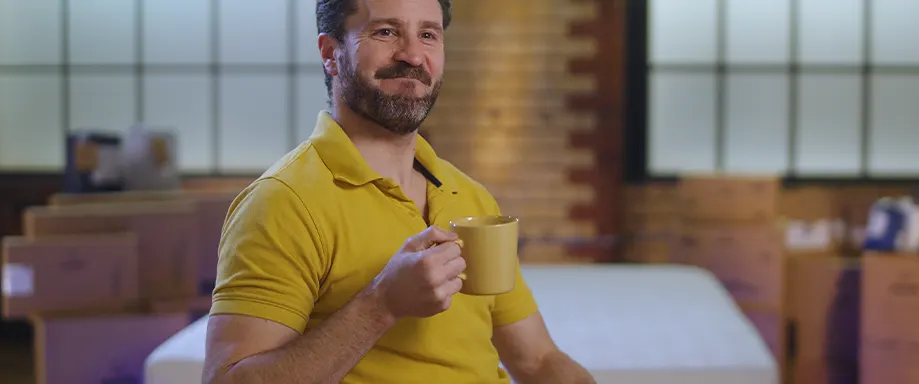The history of tea
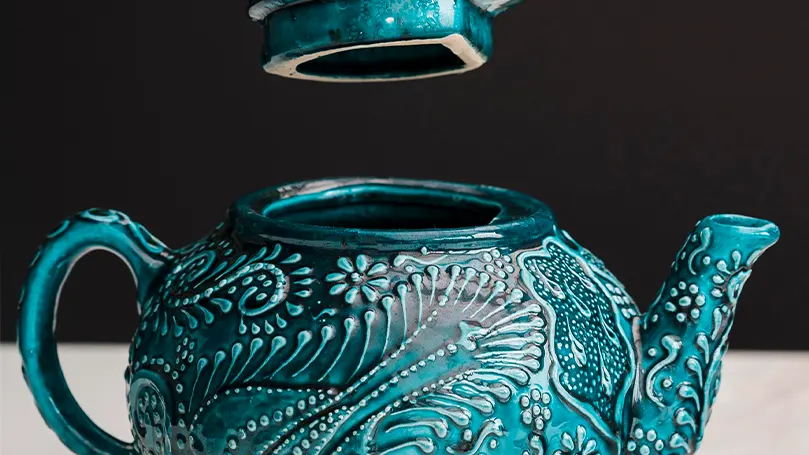
According to legend, tea drinkers have been around for thousands of years, as the tradition reportedly started all the way back in 2700 BCE in China. At first, teas were used for their potential health benefits, only becoming a more commercialised drink much later on.
The Dutch East Indian company delivered the first teas to Europe in 1610 and by 1669 they had reached the London market. And as we all know, the Americans threw the most infamous tea party back in 1773.
And in modern times, tea consumption has been rising steadily for years, with 2022 reaching a whopping 6.8 million kilograms of tea consumed in the world. So, it's safe to say that even 4 000 years later, the tea market is still thriving.
Health benefits of green tea
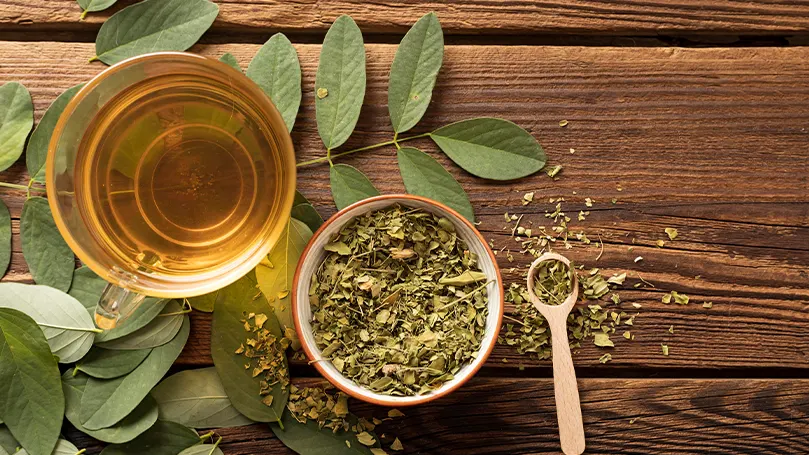
Originating from China and Japan, green tea has a small amount of caffeine and a plethora of health benefits. For one, it has a high amount of flavonoids so green tea consumption can reduce blood clotting, your blood pressure, lower your overall cholesterol levels and even decrease the chance of heart disease.
But that's not all, as some studies also indicate that a cup of green tea can combat certain cancer cells (like those found in the liver, breast, and prostate). And if regular green tea doesn't quite suit you, a cup of matcha could also do you some good as it has even more antioxidant properties! Either way, we're now drinking green tea daily.
Health benefits of black tea
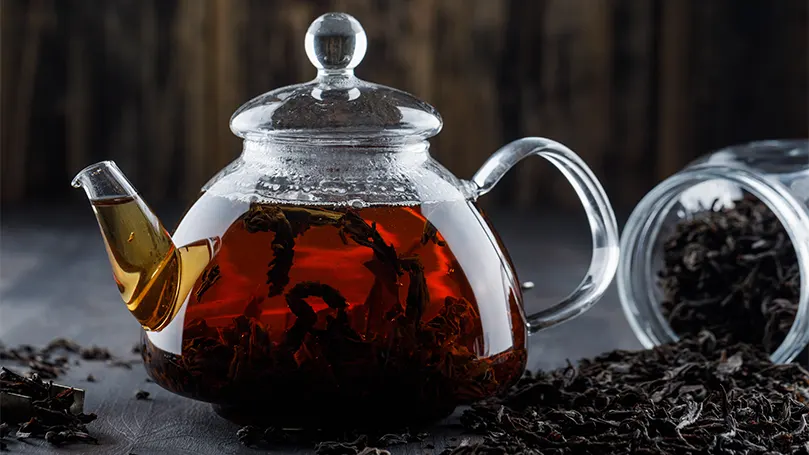
Just like green tea and oolong tea, black tea is made from the Camellia sinensis plant and contains caffeine. In fact, black tea generally has the highest caffeine dosage of any natural tea.
So, it makes for an excellent coffee alternative (as it usually sports half the caffeine amount) but you should still take note of how much you're drinking. Especially if you drink it before bed.
It also has a decent amount of flavonoids, so it can combat inflammation and boost your immune system.
And it can even be used as a more standard medicine – as the tea leaves can be prepped and then pressed on cuts and bruises for pain relief and to reduce swelling.
So, whether you're just drinking it or using it as an impromptu first-aid kit, black tea is bound to help your body out.
Health benefits of Oolong tea
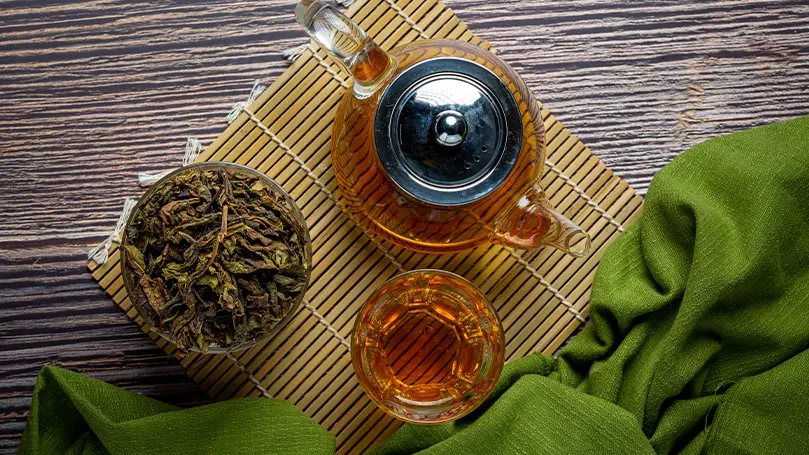
Oolong tea is like the golden middle between black tea and green tea. While green tea isn't allowed to oxidise much and black tea is oxidised until it gets its signature black colour, Oolong tea gets a more tempered treatment.
And it also comes with health benefits you don't usually see with green or black tea. For one, it contains I-theanine, an amino acid that helps you ward off anxiety and can even help with certain cognitive diseases.
Plus, along with helping lower cancer risk, Oolong tea also decreases the risk of type 2 diabetes.
You have to admit, it's pretty impressive! And if you drink it in the afternoon or morning, Oolong teas can even potentially help you fall asleep faster!
Health benefits of white tea
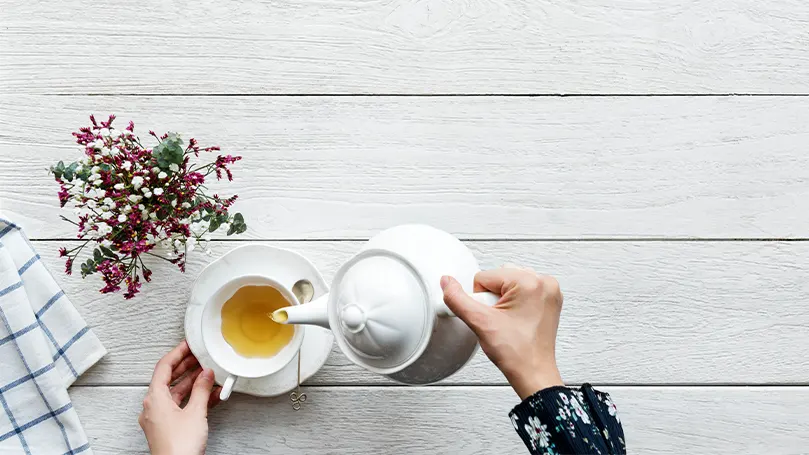
White teas aren't as popular as black, green or Oolong tea but they're still pretty great. They're also made from the Camellia sinensis plant and do contain some caffeine – although they have the smallest quantity.
So, if you want to kick your caffeine addiction, this might be a good place to start. Plus, you'll get one bright smile at the end of it! This is because white tea contains fluoride, catechins and tannins which not only strengthen your teeth but also fight off teeth plaque and make them more resilient to sugar.
So, if you want a white smile, white tea seems like the way to go! Who knew tea bags and some hot water could fix so many common issues?
Health benefits of herbal tea
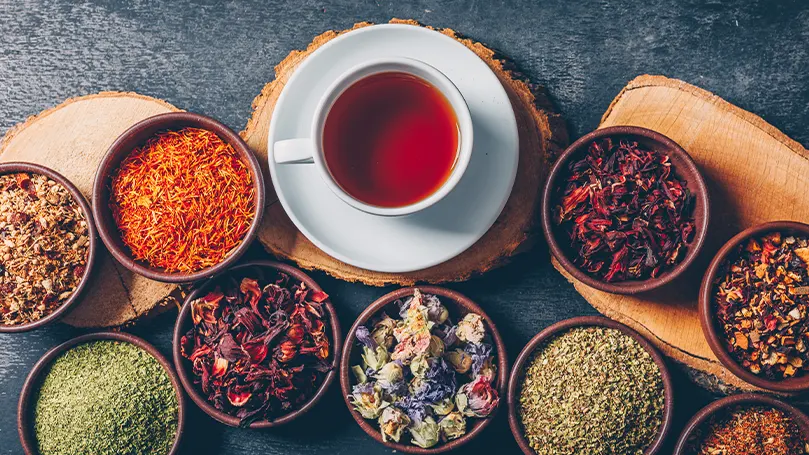
Of all the traditional teas, herbal teas are probably the most unique. Not only do herbal teas contain herbs, fruits and other plants aside from the tea leaves but they also feature no caffeine!
And depending on which type of herbal tea you pick out, you can fight off just about anything. For example, of the most popular herbal teas, Chamomile tea helps with menstrual pain, Peppermint helps lessen the symptoms of Irritable Bowel Syndrome, and Hibiscus prevents the forming of kidney stones.
One really has to wonder why an apple keeps the doctor away when tea drinking can basically improve all aspects of your health.
The best tea for helping you fall asleep
Since we're The Sleep Advisors, it only made sense that we talk about sleep at some point, especially since habitual tea consumption can in fact help quite a bit.
So, let's go over some of the more popular teas that can help you fall asleep faster and catch all of the ZZZs your heart could want (or need).
Green tea
We're going to start things off with green tea as we want to point something out – only a herbal or decaffeinated tea can positively affect your sleep.
Some green teas do have very small amounts of caffeine but we would generally advise you to get the decaffeinated kinds if possible. After all, better safe than sorry.
Now that that's out of the way, let's talk about green tea. Thanks to a special little compound known as epigallocatechin-3-O-gallate (EGCG), green tea has been observed to have a sedative effect.
So, if the tea flavonoids weren't a good enough sales pitch to get some green tea, you should take the sleep benefits into consideration as well.
Chamomile tea
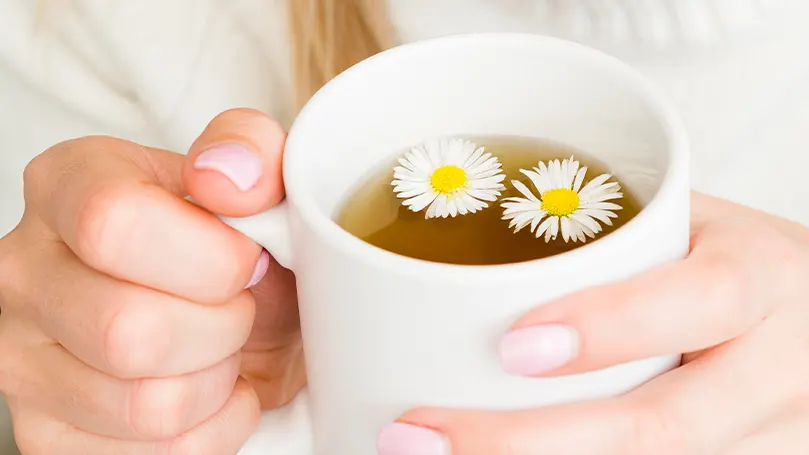
Chamomile tea contains no caffeine and like many herbal teas can help calm you down. This plus the sedative effect it can have after drinking it makes it the ideal late-night beverage.
However, we also want to point out two things here. For one, don't drink it right before bed, as raising your body temperature isn't something you'd typically want right before going to bed.
And two, the research is somewhat inconclusive when it comes to the correlation between consuming tea and getting better sleep. So, don't treat it as an end-all-be-all solution but rather take a look at your sleep hygiene as well.
Lavender tea
When talking about sleep quality a factor some people might overlook is how stress and anxiety affect the entire process. Because if your head is a mess, sleep won't come as easily as usual.
So, it only makes sense that Lavender tea, a herbal tea that helps you calm down and relax, has been linked to better sleep in a few studies.
And if you pair it with the best weighted blanket you can find, your stress will basically vanish. So, make sure to help out your mental health when trying to get that perfect night of sleep.
Valerian tea
Since Valerian is already used as a supplement for sleep, it only makes sense that a tea made from the same plant would have similar effects.
That being said, the jury is still out on just how useful Valerian can be when battling insomnia or other sleep disorders. But at the very least, it should have a nice sedating effect.
And even if it doesn't end up working out for you specifically, you still got some good tea in the process – so, we wouldn't say it's a big risk getting some.
Peppermint tea
As per usual, there hasn't been a 100% air-tight study that proves Peppermint tea helps you sleep, but it certainly won't hinder your sleep either.
After all, it doesn't contain any caffeine and as long as you don't add tons of sugar, you should be golden.
That being said, peppermint does have a documented effect on muscle tension and even your stomach if you're suffering from IBS. And if it can help your muscles relax and stop you from going to the bathroom every 5 minutes, we'd say sleep is bound to come more easily!
Conclusion
If it wasn't clear by now, we heavily support all tea drinkers! The amount of benefits you get from just drinking one cup a day is honestly ridiculous and it's a delicious beverage on top of that.
So, the British and the Chinese have been lightyears ahead of the rest of the world, as everyone needs to get on the tea-appreciation train and reap the benefits.
From lowering the risk of cancer to just helping you relax and get a good night's sleep, tea should be a staple in your diet. Will these health benefits of tea finally make you swap sides and let go of coffee? Let us know in the comments!

